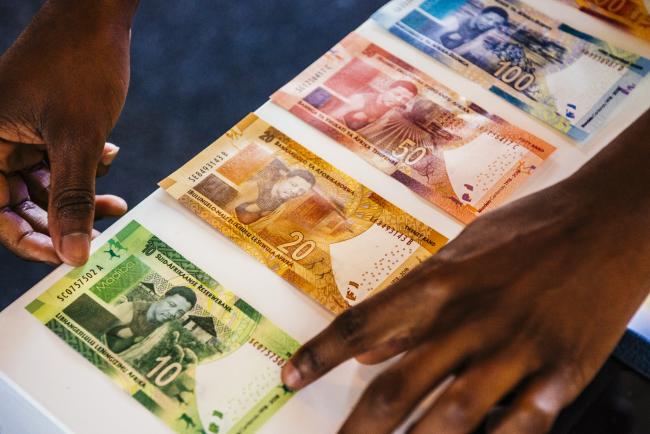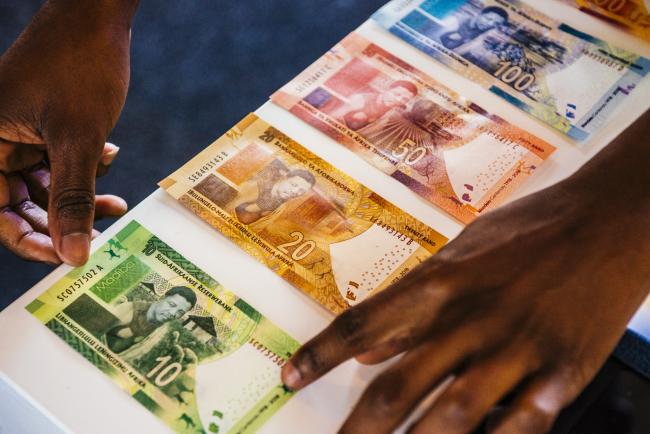(Bloomberg) -- The rout in emerging markets showed few signs of abating, even as some of the worst-hit currencies took a breather, as an index of stocks slipped toward bear territory and a basket of currencies traded near its lowest since May 2017.
The MSCI Emerging Markets Index of shares extended its slide to 19.7 percent from a January peak. Among the worst-hit stock markets were Saudi Arabia and Indonesia, where benchmark indexes tumbled by the most in about two years. The Argentina peso and Turkish lira, which have led global losses this year, eked out gains as the nations took measures to curb the damage.
The declines added to concern that investor anxiety is beginning to infect markets whose economies are more robust than others. The negative tone was set Tuesday by a U.S. manufacturing report that boosted the odds of further Federal Reserve rate increases and a strengthening dollar, and South African data showing the economy entered into a recession in the second quarter.
It’s “no longer just about EM fundamentals,” Sameer Goel, the head of macro strategy for Asia at Deutsche Bank AG (DE:DBKGn) in Singapore, said in a Bloomberg TV interview with David Ingles. It’s “increasingly about contagion, which largely happens because of cross-holdings and the pressure of redemptions.”
READ: JPMorgan (NYSE:JPM), BlackRock Warn of Contagion Pummeling Emerging Markets
Analysis:
- Emerging Stocks Are Close to Falling Into a Bear Market: Chart
- Contagion or Not, These Emerging Markets Hold Key to Selloff
- 2018’s Only Winning EM Currency Is Close to Joining Losers Club
- Algebris Says Emerging-Market Pain Isn’t Over Amid Contagion
- Here’s How You’ll Know the Sharks Have Left EM Waters: Macro Man
- Deutsche Bank Says These Four Events Could Stave Off EM Collapse
Commentary:
- "We’re not yet ready to enter into these markets," said Meenal Patel, EMEA head of FX, commodities & rates at JPMorgan Private Bank in London. "The market is very much focused on those currencies with large amounts of external debt."
- September is unlikely to provide much relief to emerging markets, James Lord and his colleagues at Morgan Stanley (NYSE:MS) in London wrote in a note, staying short on currencies from Brazil, Mexico, South Africa, Russia, Indonesia, India and the Philippines against the dollar, euro and yen.
- “It has to get a lot worse before it gets better," said Kay Van-Petersen, global macro strategist at Saxo Capital Markets. "When you get full contagion, everything gets thrown out, and we’re not there yet.”
Latin America:
- ARGENTINA:
- Merval Index increased 4.2 percent to 28,783.69
- Peso gained 1.3 percent to 38.40 per dollar
- IMF Director Christine Lagarde is said to have promised to expedite funds to government, Argentine journalist Marcelo Bonelli reported
- Argentine Default Risk Jumps to Highest Since May 2016: Chart
- BRAZIL:
- Ibovespa advanced 0.7 percent to 75,266.69
- Real gained 0.8 percent to 4.1276 per dollar
- 10-year local-bond yield declined six basis points to 12.51 percent
- Two major pollsters frustrated expectations for fresh voter data by suspending or canceling poll releases
- Market-friendly presidential candidate Geraldo Alckmin accused of illegal campaign finance, Jota reports citing lawsuit
- MEXICO:
- Mexbol index dipped 0.7 percent to 48,564.01
- Peso advanced 0.2 percent to 19.3643 per dollar
- 10-year local-bond yield gained two basis points to 8.037 percent, highest on record
- Uncertainty about trade deal’s future remains high, pressuring peso on top of unfavorable macro environment, Commerzbank (DE:CBKG) said
- Nafta Talks Restart as Trump, Congressional Clock Boost Pressure
- Click for market news on ANDES
EMEA:
- TURKEY:
- Borsa Istanbul 100 Index dipped 0.4 percent to 92,790.99
- Lira gained 1.2 percent to 6.5913 per dollar
- If the central bank fails to deliver an adequate amount of monetary tightening next week, that may spur further lira weakness, said Phoenix Kalen, a strategist at Societe Generale (PA:SOGN) SA in London
- President Recep Tayyip Erdogan said no invitation for a bilateral talk with Donald Trump at UN summit in New York later this month
- SOUTH AFRICA
- FTSE/JSE Africa All Share Index dipped 1.4 percent to 57,102.13
- Rand declined 0.6 percent to 15.4354 per dollar, weakest in more than two years
- 9-year local-bond yield gained gained one basis point to 9.227 percent, highest in more than eight years
- "The rand is one of the most traded currencies in emerging markets, so its vulnerability lies there more than anything else," Finance Minister Nhlanhla Nene told Bloomberg
- Ruling party said it’s concerned about losing support after economy plunged into a recession last quarter
- Stock outlook in second half may be brighter, said Patrice Rassou, head of equities at Sanlam Investment Management in Cape Town
- South Africa Targets Structural Reform to Revive Lagging Economy
- RUSSIA:
- MOEX Russia Index dipped 0.3 percent to 2,329.78
- Ruble declined 0.2 percent to 68.2125 per dollar
- 10-year local-bond yield advanced nine basis points to 8.89 percent, highest in about 21 months
- Government axed bond sale amid market volatility
- Russian Rate Hike in Play as Ruble Revs Up Inflation at Last
- Click for market news on POLAND and HUNGARY
Asia:
- CHINA:
- Shanghai Composite Index fell 1.7 percent to 2,704.34
- Offshore yuan was little changed at 6.8470 per dollar
- 10-year local-bond yield gained two basis points to 3.635 percent
- Donald Trump may proceed with tariffs after public comment period ends Thursday, said White House Press Secretary Sarah Sanders
- U.S. trade deficit with China climbed to a record
- Investors See Bargains in Depressed China Convertible Bonds
- China ETFs See Most Inflows Since 2015 as Stocks Top Value Chart
- PBOC Is Said to Have Drained Short-Term Liquidity in August
- INDIA:
- Sensex Index dipped 0.4 percent to 38,018.31
- Rupee declined 0.3 percent to 71.763 per dollar, weakest on record
- 10-year local-bond yield fell one basis point to 8.0522 percent
- Nation probably overestimated manufacturing output while calculating economic growth that topped 8 percent last quarter, according to a member of the central bank’s rate-setting panel
- Central bank has room to spend up to $30 billion to protect currency, according to Nomura Holdings
- Rupee Woes to Deepen as India Braces for External Headwinds
- Click for more on markets in ASIA

